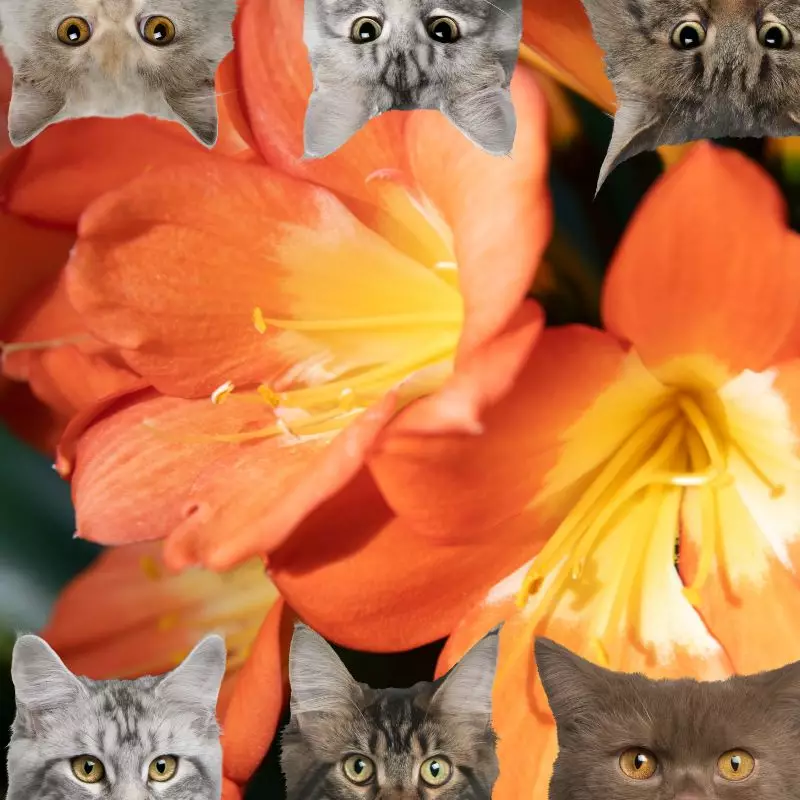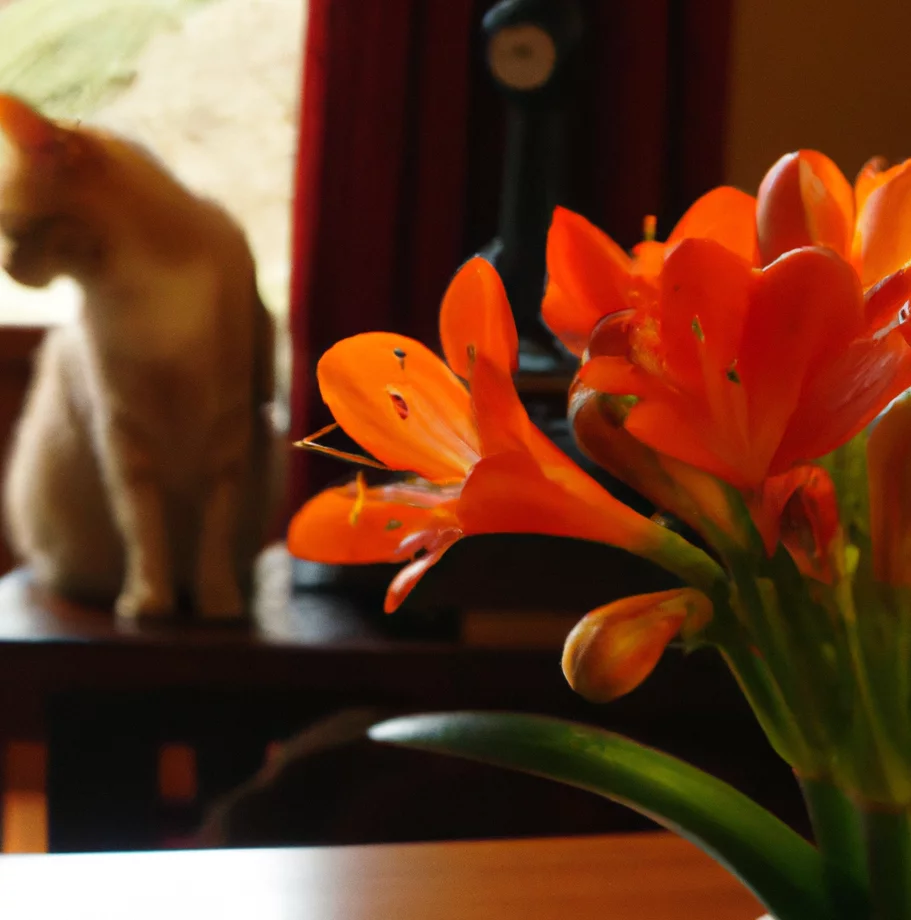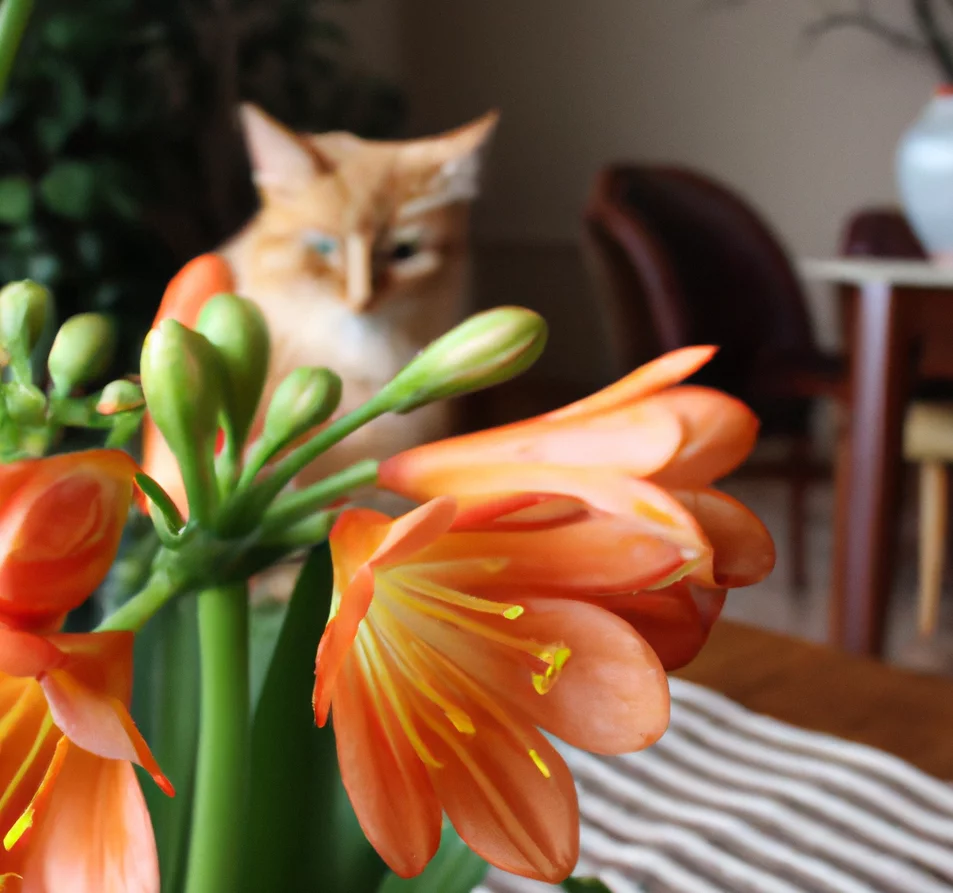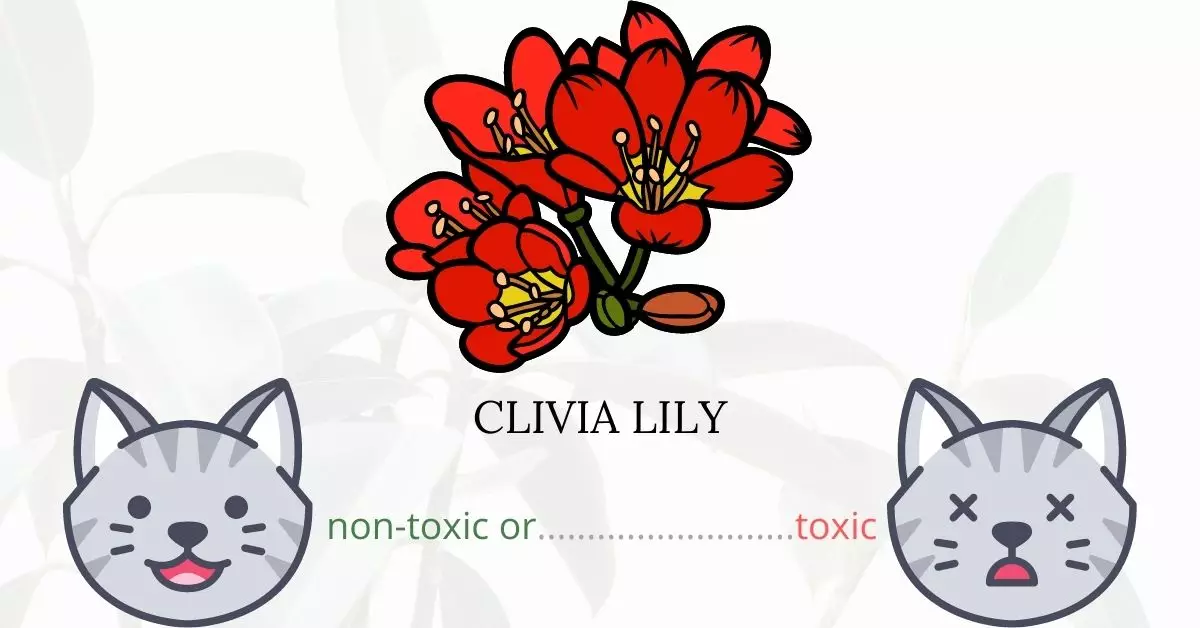Yes, Clivia Lilies are toxic to cats. Commonly known as Kaffir Lily, Clivies, Caffre Lily, Cape Clivia, or Klivia, these plants contain compounds like Lycorine and other alkaloids such as crinidine, clivacetine, clivonine, cliviasine, and clividine. These alkaloids can act as emetics, substances that induce vomiting, although the specific process is not fully understood. If a cat consumes significant amounts, symptoms may include vomiting, diarrhea, excessive salivation, frequent urination, and convulsions.
This article is crafted in collaboration with a team of experienced DVMs (doctors of veterinary medicine). Their expert knowledge, combined with our thorough research from high-authority sources such as ASPCA and PetMD, ensures we provide accurate and up-to-date information on the potential risks associated with various plants, especially Clivia Lilies, and their effects on cats.
Clinical Signs of Clivia Lily Poisoning in Cats

When a cat comes into contact with or ingests parts of the Clivia Lily plant, several clinical signs can manifest due to the toxic compounds present in the plant. It’s essential to recognize these signs early and seek veterinary attention immediately:
- Vomiting: Caused by the emetic nature of the alkaloids in the plant, especially Lycorine. This is the body’s natural response to try and expel the ingested toxins.
- Hypersalivation: Alkaloids can irritate the mucous membranes of the mouth, leading to excessive drooling or salivation.
- Diarrhea: The toxins can upset the gastrointestinal system, leading to diarrhea as the body tries to eliminate them.
- Convulsions: High levels of toxin intake can affect the cat’s neurological system, resulting in seizures or convulsions.
- Cardiac arrhythmia: Some of the plant’s compounds can disrupt the normal rhythm of the heart, leading to irregular heartbeats.
- Fatigue: The body’s effort to combat the toxins can lead to a general state of weakness or fatigue.
- Lethargy: A common reaction to poisoning, lethargy is a sign that the cat’s system is being affected by the Clivia Lily’s toxins.
- Excessive thirst: Due to the dehydration that can result from vomiting and diarrhea, cats might show an increased need to drink water.
- Inappetance: Cats may lose their appetite as a result of gastrointestinal disturbances caused by the plant’s toxins.
- Paralysis: In severe cases, the neurological impact of the toxins can lead to temporary or permanent paralysis.
It’s crucial to be vigilant if you suspect your cat has been in contact with Clivia Lilies. While some symptoms might appear gradually, they can develop and escalate over time.
First Aid and Treatment of Clivia Lily Poisoning in Cats

If your cat is very dehydrated or has an electrolyte imbalance as a result of vomiting and diarrhea, the vet will require IV fluids. Inducing vomit will help to eliminate any remaining toxins in your cat’s gut. The vet may also perform a gastric lavage as this will get rid of any poisons stuck to your cat’s stomach lining. Activated charcoal, which can absorb any toxins in your cat’s body before they enter the bloodstream, could also be potentially be given by the vet. Other medications can be also prescribed by the vet to ease other symptoms that your cat is experiencing.
Recovery from Climbing Nightshade Poisoning in Cats

Your cat’s full recovery is guaranteed if he or she was given prompt medical attention. After your cat’s treatment, make him or her comfortable at your home and limit his activities as he is regaining strength. Call your veterinarian if your cat manifests recurrence of symptoms.
Prevention of Climbing Nightshade Poisoning in Cats
Clivia lily plants should be removed from your home and yard. If you ever receive a floral arrangement, make sure it is free of clivia lilies or other toxic plants before putting it in your home. It is best if you keep your cat indoors so he does not come into contact with this plant in someone else’s yard.
If you love plants but have cats at home, check out these lists:





